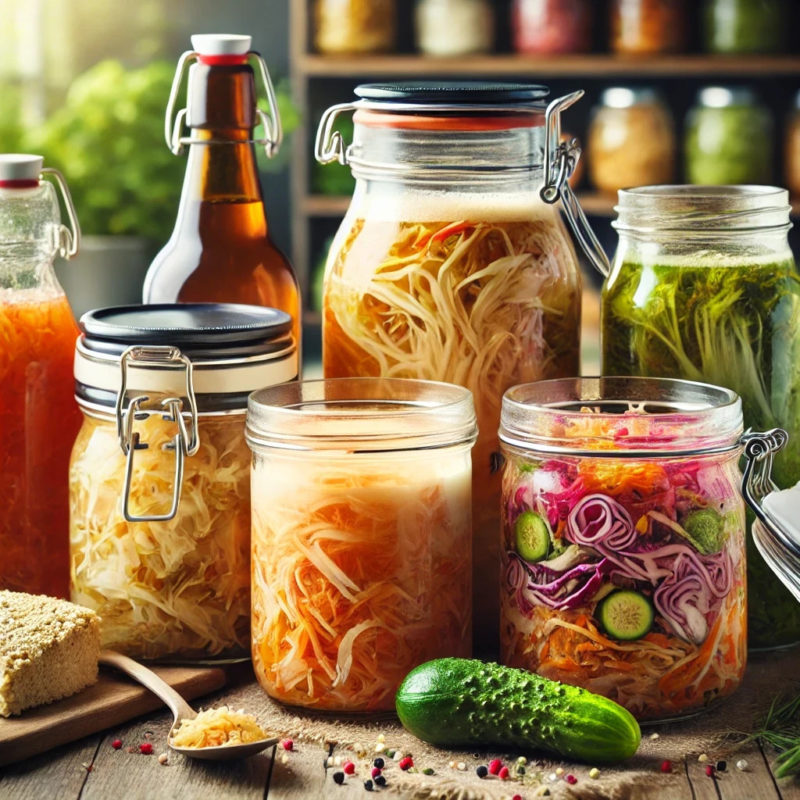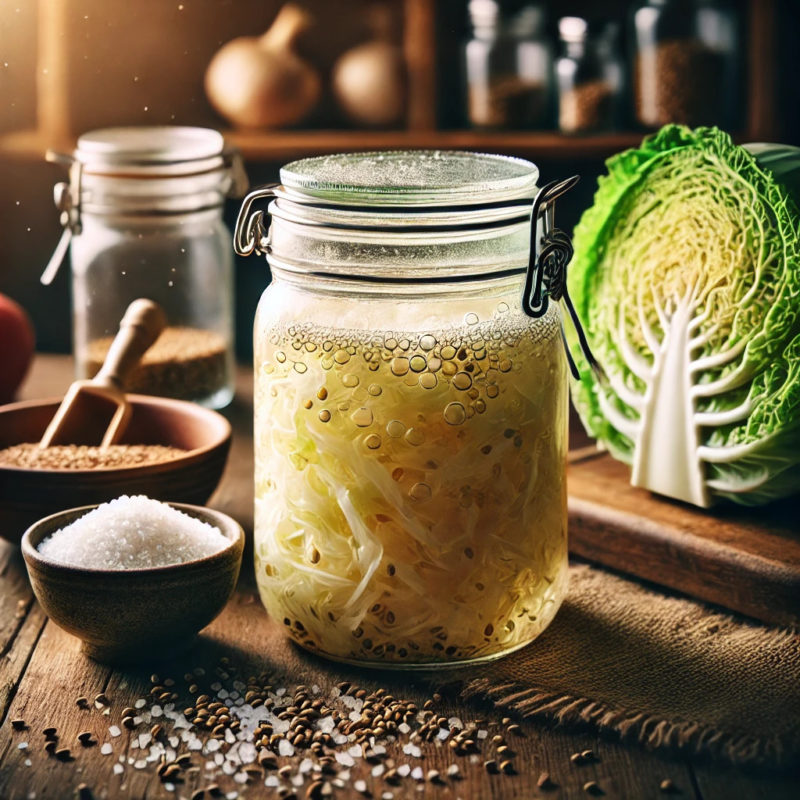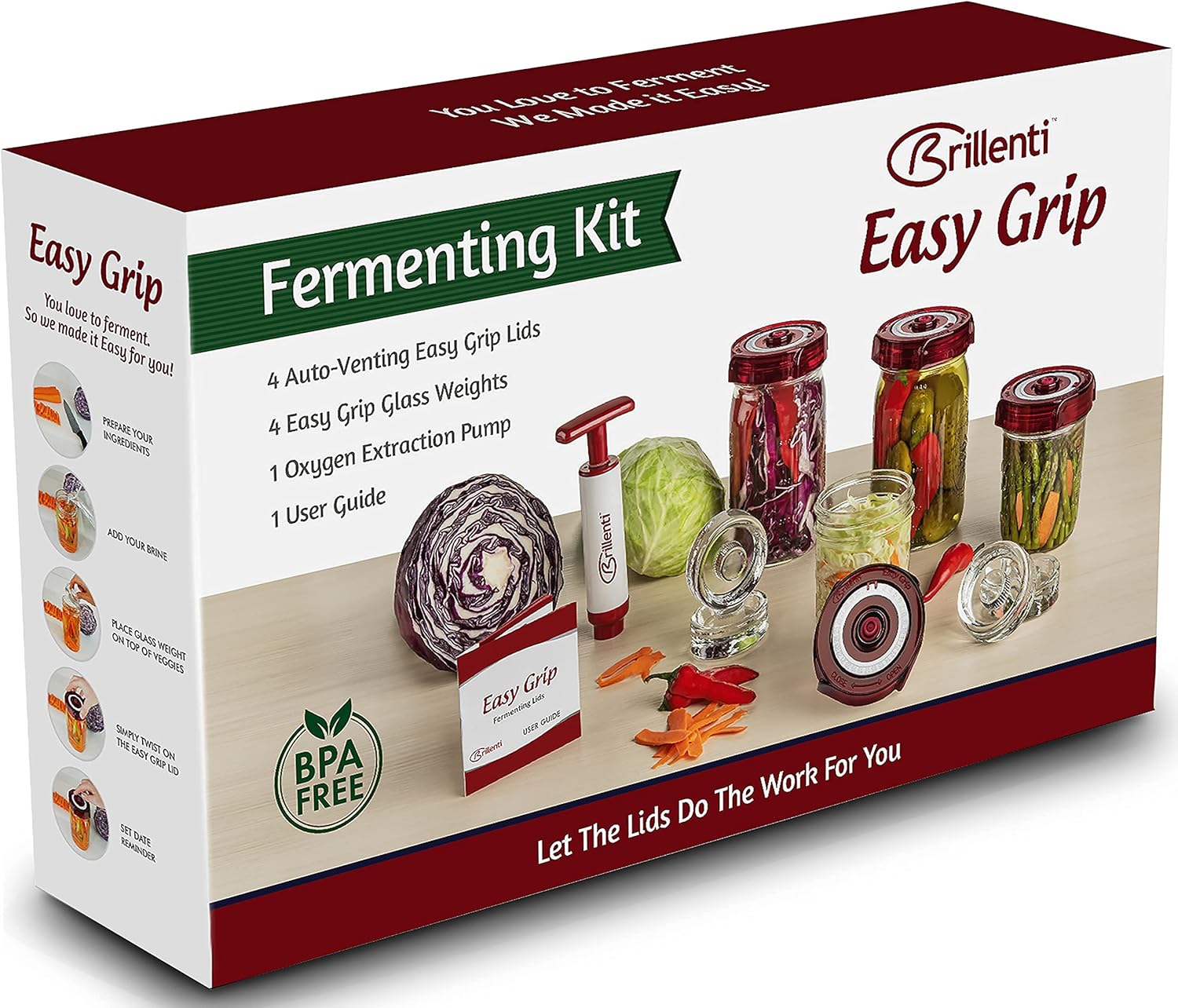Fermentation has become increasingly popular as more people look for ways to make their own healthy, probiotic-rich foods at home. Whether you’re fermenting vegetables, brewing kombucha, or making yogurt, choosing the right fermentation kit is key to ensuring your fermentation projects are successful. With so many kits available, finding the one that suits your specific needs can feel overwhelming.
In this guide, we’ll help you navigate the process of selecting the perfect fermentation kit based on your goals, experience level, and the type of food you want to ferment.
1. Identify What You Want to Ferment
Before choosing a fermentation kit, it’s important to consider what type of fermenting you’re interested in. Different kits are designed for different types of fermentation, and selecting the right one will ensure that you have the tools you need.
Popular Types of Fermentation:
- Vegetable Fermentation (Sauerkraut, Kimchi, Pickles)
- Kombucha Brewing
- Yogurt and Kefir Fermentation
- Beer and Wine Brewing

For example, if you’re interested in making kombucha, you’ll need a kit with a SCOBY (Symbiotic Culture of Bacteria and Yeast) and glass jars, whereas fermenting vegetables will require fermentation weights and airlock lids.
2. Consider Your Experience Level
Your experience level plays a significant role in the type of kit that’s best for you. Are you a beginner just getting started with fermentation, or are you an experienced fermenter looking to expand into new types of ferments?
For Beginners:
- Complete Kits: Look for kits that include all the necessary tools, such as jars, airlock lids, fermentation weights, and instructions. These kits simplify the process by providing everything in one package.
- Beginner-Friendly Kits: These are typically designed for easy, hands-off fermentation, making them ideal for those just starting out.

For Experienced Fermenters:
- Advanced Kits: If you’ve been fermenting for a while, you might prefer advanced kits with specialized tools like pH meters, thermometers, or multiple jar sizes.
- Customization: You may want to customize your kit by adding tools you don’t already have, such as high-quality fermentation crocks or specialized airlocks.
3. Look at the Size and Capacity of the Kit
The size of the fermentation kit is another important factor. Think about how much you want to ferment at one time and how often you’ll be fermenting. Kits can vary in size, from small jars designed for single-batch fermenting to larger setups that allow you to ferment in bulk.
Small-Scale Kits:
- Ideal for individuals or small households who want to experiment with small batches.
- Kits with 16-ounce to 32-ounce jars are perfect for occasional fermenting.
Large-Scale Kits:
- If you plan to ferment in bulk or want to ferment for a family, look for kits with larger jars or crocks.
- Consider kits with half-gallon to three-gallon jars for larger batches of kombucha, pickles, or sauerkraut.
4. Check the Quality of Materials
The quality of the materials used in the kit is crucial to ensuring successful fermentation. Since fermentation is a chemical process that produces acids and gases, you’ll want materials that are durable and food-safe.
Common Materials in Fermentation Kits:
- Glass: Ideal for jars because it’s non-reactive and allows you to monitor the fermentation process visually. Look for kits with thick, durable glass.
- Ceramic: Often used for larger fermentation crocks, ceramic is also non-reactive and ideal for long-term fermenting.
- Plastic: While some fermentation kits use BPA-free plastic, it’s best to avoid plastic containers because they can scratch easily and may harbor bacteria.
- Stainless Steel: Useful for some tools like tongs or weights, but should be used cautiously as it can react with certain ferments.

5. Check for Essential Fermentation Tools
Different fermentation kits come with different tools, and it’s important to know what you need for your specific ferment. A good kit will include several key components to make the process smooth and easy.
Key Tools to Look For:
- Jars or Crocks: The container for holding your fermenting food or drink. Look for kits with jars that come with airtight lids or airlock systems to prevent contamination.
- Fermentation Weights: Essential for vegetable fermenting, these weights keep vegetables submerged under the brine, preventing mold from forming.
- Airlock Lids: These lids allow gas to escape without letting air in, creating the perfect anaerobic environment for fermentation.
- pH Meter: For more advanced fermenters, a pH meter helps ensure the proper acidity levels are reached, especially in sensitive ferments like kombucha and yogurt.
6. Consider Additional Features
Some fermentation kits come with extra features that can make the process more convenient or allow you to experiment with different techniques. Here are some additional features to look for:
- Temperature Control: Certain ferments, like yogurt or kombucha, require a stable warm temperature. Some kits include heating mats or temperature gauges.
- Recipe Books or Online Resources: Many kits come with recipe guides or access to online resources to help beginners learn the basics of fermentation.
- Multiple Jar Sizes: If you plan to ferment different types of food or drinks, kits that come with multiple jar sizes can be more versatile.
7. Check Reviews and User Feedback
Before making a final decision, check user reviews and feedback for each fermentation kit. This can give you insight into the quality, ease of use, and durability of the kit. Look for reviews that mention success with the type of ferment you’re interested in, whether that’s kombucha, yogurt, or pickles.
You can also look for recommendations from fermentation communities or trusted websites that specialize in kitchen tools.
Conclusion
Choosing the right fermentation kit is essential for a successful fermenting experience, whether you’re a beginner or an experienced fermenter. By considering what you want to ferment, your experience level, the size and materials of the kit, and the tools included, you can find the perfect kit for your needs.
Whether you’re looking to make kombucha, ferment vegetables, or brew your own beer, investing in a high-quality fermentation kit will make the process easier and more enjoyable. Start fermenting with confidence by selecting a kit tailored to your specific goals.
This site is a participant in the Amazon Services LLC Associates Program and contains affiliate links to products. We may receive a commission for purchases made through these links.

Hello.
Good cheer to all on this beautiful day!!!!!
Good luck 🙂